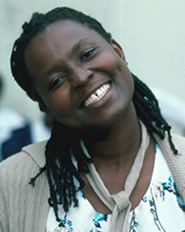Bakiga in Uganda

Photo Source:
Masters View / Howard Erickson
|
Send Joshua Project a map of this people group.
|
| People Name: | Bakiga |
| Country: | Uganda |
| 10/40 Window: | No |
| Population: | 3,520,000 |
| World Population: | 3,520,000 |
| Primary Language: | Chiga |
| Primary Religion: | Christianity |
| Christian Adherents: | 98.00 % |
| Evangelicals: | 47.00 % |
| Scripture: | Complete Bible |
| Ministry Resources: | No |
| Jesus Film: | No |
| Audio Recordings: | Yes |
| People Cluster: | Bantu, Central-Lakes |
| Affinity Bloc: | Sub-Saharan Peoples |
| Progress Level: |
|
Introduction / History
Bakigas, also called the Kiga or Abakiga (meaning "people of the mountains"), are a Bantu ethnic group native to northern Rwanda and southern Uganda. It is believed that they migrated from Rwanda and settled primarily in the districts of Kabale, Kanungu, and Rukungiri (these districts make up the region called Kigezi of southwestern Uganda).
Bakigas speak a Bantu language known as Rukiga.
Traditionally, a Bakiga homestead consisted of a main house or hut, a kitchen, a kraal, sanitation facilities, and a series of granaries, all enclosed by a strong fence made primarily of thorny plants like "emikwatangwe" (plants that restrain leopards). This fence provided protection against wild animals, livestock thieves, and enemies.
Bakigas was responsible for the formation of the Kiga Kingdom, its clans and sub-clans, and all the direct descendants of his children. Each clan was identified by a totem and by specific foods they were forbidden from eating.
What Are Their Lives Like?
Bakigas reside in close-knit communities, where cooperation and unity are deeply valued.
Social gatherings like the Bakiga Nation festival play a significant role in showcasing their cultural heritage and fostering a strong sense of community.
Also, agriculture remains the backbone of the Bakiga economy, with staple crops including bananas, potatoes, beans, and sorghum. They also rear livestock, especially goats, cattle, and sheep. Owning cattle is also traditionally a sign of wealth and social status. They also rear poultry.
While traditional customs have evolved over time, many enduring practices remain, such as rites of passage like initiation into adulthood, and vibrant traditional dances like “Ekizino.”
What Are Their Beliefs?
The Bakiga traditionally believed in Ruhanga as the supreme being and the creator of both the heavens and the earth.
Some Bakiga believe in the “Nyabingi cult”, a significant spiritual force, believed to have originated in Karagwe and centered around Lake Bunyonyi.
Today, Christianity comprises 98.0% of their population.
What Are Their Needs?
Reliable healthcare services are needed to address health challenges and improve overall well-being.
Access to basic social services like clean water, sanitation, and housing is essential.
Prayer Points
Pray that more Bakiga will engage in outreach, reaching their own people, their country, and the ends of the world.
Pray for humility and unity among Bakiga Christians.
Pray for God's provision for the Bakiga people, through his people to provide quality healthcare, education, and clean water.
Pray that God will continue to raise up a young generation who will passionately pursue his will.